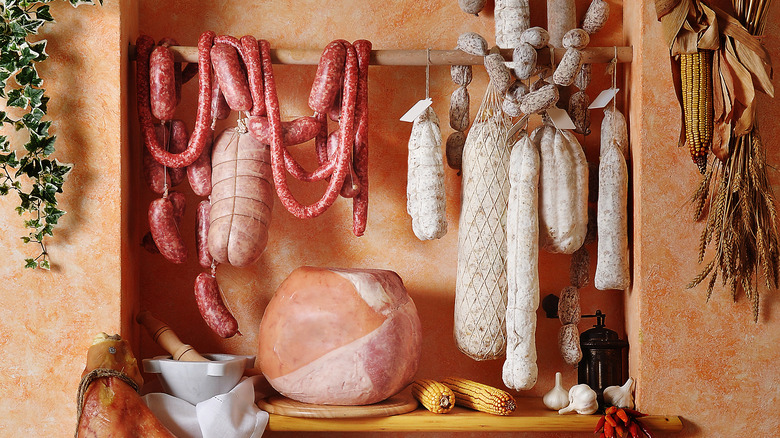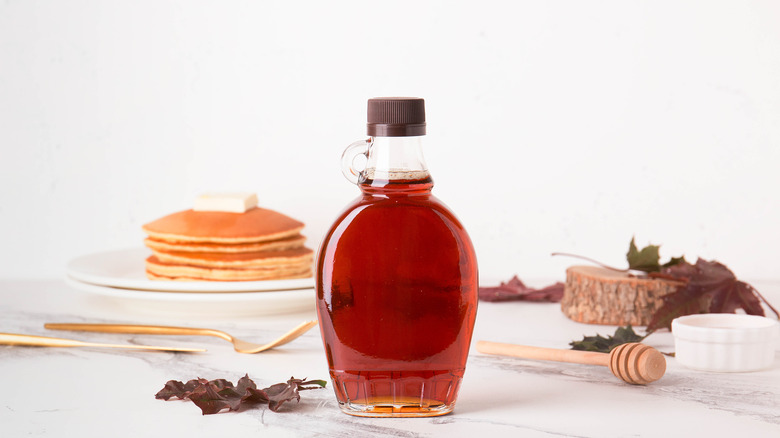Can You Really Store 'Shelf-Stable' Cured Meats In The Pantry?
It's not an exaggeration to say that shelf-stable foods — e.g. items that can be stored for long periods without refrigeration — are one of the most important discoveries in human history. Sure, refrigeration technology allowed us to store foods for a lot longer than was previously possible. But it was the advent of shelf-stability that moved us away from short-lived, seasonal, locally produced foods.
New processing techniques have done as much to solve widespread hunger as any other piece of food technology in the last 500 years. Shelf stability has made a huge difference not only in canned foods, but also for staples we take for granted today, such as eggs.
But which products are actually shelf-stable, according to chefs and other experts? Which should you keep in your pantry, and which should be put in the fridge (even if the packaging insists otherwise)? And what do we do with something like cured meats?
You really shouldn't put cured meat in the pantry
Pretty much everyone with a say in the matter will tell you to use the fridge when it comes to cured meats.
"Cured meats, such as hard Italian salami, should never be kept in the pantry and should be refrigerated in butcher paper instead," chef Donatella Arpaia told Food & Wine in 2022. "Although many say 'shelf stable,' leaving it in the pantry dries the meat out. In addition, there have been studies showing the presence of food-borne illnesses, so play it safe and put it in the fridge."
It's not just chefs who believe in storing salami, prosciutto, and other cured products in your refrigerator; the food safety experts at the National Center For Home Food Preservation agree. This is true not just of domestic cured meats, but imported meats, too. Some international versions of products such as cheese may have totally different processing practices, but nothing in the overseas meat-curing process makes a difference here.
Other shelf-stable items you should put in the fridge
Cured meats aren't the only shelf-stable food experts recommend not storing in the pantry. Some of these aren't wholly surprising. (Very few of us were likely storing dijon mustard or opened tomato sauce in the cupboard, and a lot of people put bread in the fridge to make it last longer.) But others might catch you a bit off-guard.
"Maple syrup will grow moldy outside the fridge, especially the organic varieties," chef Judy Joo told Food & Wine. And Anne Burrell told the outlet that peanut butter will fare better in the fridge, too.
Granted, some foods should be kept in the fridge for reasons other than "it might go bad." These include the aforementioned dijon mustard (which won't make you sick, but might lose its flavor) and fish sauce ("If it spills accidentally, you are never getting rid of that smell," Franklin Becker said to Food & Wine). When it comes to food storage, everyone should listen to the experts.


